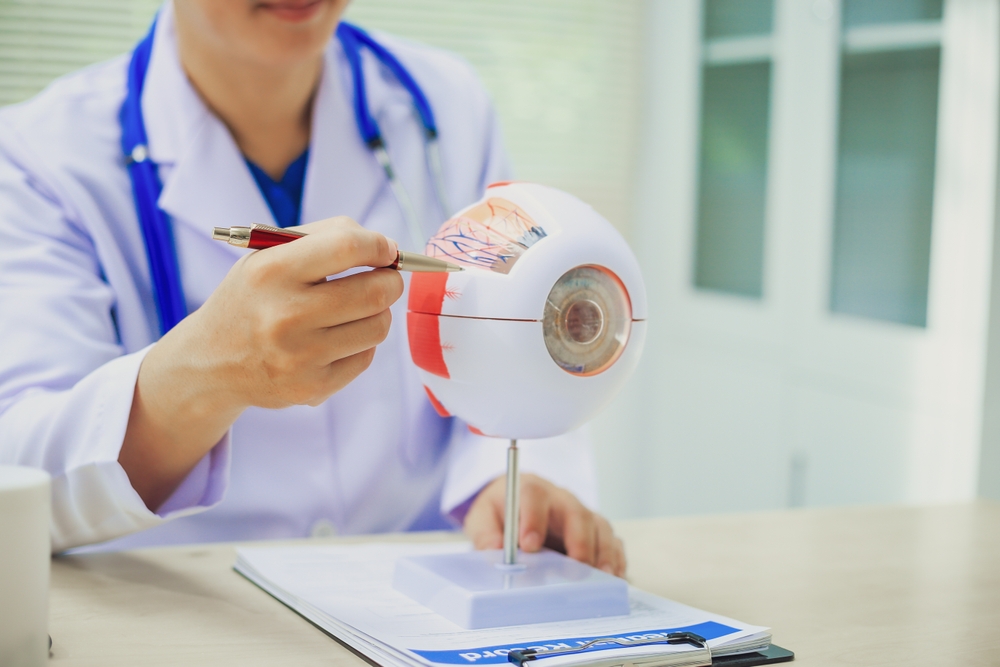
Diabetic retinopathy is a leading cause of vision loss, yet many people don’t realize they have it until irreversible damage has already occurred. Regular eye exams that can catch the condition early, before it impacts your daily life. At Hunter Family Vision, we’re committed to helping our community stay proactive about eye health. Here’s what you need to know about diabetic retinopathy, the warning signs to watch for, and why early detection is key to preserving your vision.
What is Diabetic Retinopathy?
Diabetic retinopathy occurs when high blood sugar levels damage the tiny blood vessels in the retina—the light-sensitive layer at the back of your eye. Over time, this damage can cause these vessels to leak, swell, or close off entirely, leading to vision impairment or blindness.
There are two main stages of the disease:
Non-Proliferative Diabetic Retinopathy (NPDR): The early stage, where blood vessels weaken and leak small amounts of fluid or blood into the retina. Many people don’t experience symptoms at this point, making regular eye exams crucial.
Proliferative Diabetic Retinopathy (PDR): The advanced stage, where new abnormal blood vessels begin to grow in response to damage. These vessels are fragile and can lead to severe complications, including retinal detachment and blindness.
Red Flags You Shouldn’t Ignore
While diabetic retinopathy can progress silently, there are warning signs that indicate the disease may be advancing. If you notice any of these symptoms, it’s time to schedule an eye exam immediately:
Blurred or fluctuating vision
Dark or empty spots in your vision
Trouble seeing at night
Colors appearing faded or washed out
Sudden floaters or flashes of light
Vision loss
These symptoms don’t always mean you have diabetic retinopathy, but they do signal that something isn’t right. The sooner you have your eyes examined, the better your chances of protecting your sight.
Who Is at High Risk?
Not everyone with diabetes develops retinopathy, but certain factors can significantly increase your risk. One of the biggest risk factors is the duration of diabetes—the longer you have the condition, the higher your chances of developing complications like diabetic retinopathy. Even if you keep your blood sugar well-controlled, regular eye exams remain essential for early detection.
Poor blood sugar control also plays a major role in the development of diabetic retinopathy. High blood sugar levels over time can damage the tiny blood vessels in your eyes, increasing the likelihood of vision complications. Maintaining stable blood sugar through diet, exercise, and medication can help reduce this risk.
Other health conditions, such as high blood pressure or high cholesterol, can compound the effects of diabetes on your eyes. These conditions damage blood vessels throughout the body, including those in the retina, making it even more important to manage your overall health and schedule routine eye exams.
Additionally, smoking further increases the risk by worsening circulation issues and accelerating retinal damage. Tobacco use contributes to poor blood vessel health, which can speed up the progression of diabetic retinopathy and other vision-related complications.
Protect Your Vision at Hunter Family Vision
For those in Leawood, Prairie Village, and beyond, having a trusted optometrist on your healthcare team is one of the best ways to protect your vision. Because diabetic retinopathy can develop unnoticed, comprehensive eye exams—including retinal imaging—are the only way to detect early changes before they impact your vision. We specialize in diabetic eye care and use advanced diagnostic technology to monitor your eye health.
If you have diabetes, don’t leave your eyesight to chance. Schedule your annual eye exam with Hunter Family Vision, and take the next step in protecting your eyes from diabetic retinopathy. Visit our office in Leawood or Prairie Village, Kansas. Please call (913) 681-8555 or (913) 381-2323 to book an appointment. For after-hours urgent care, please call (913) 204-0239.











